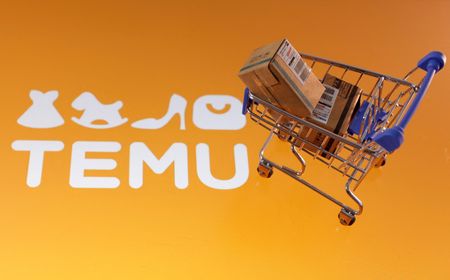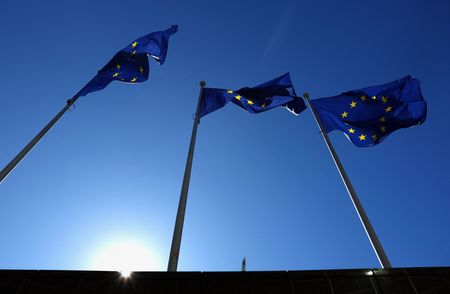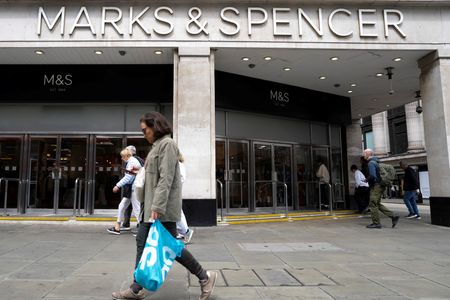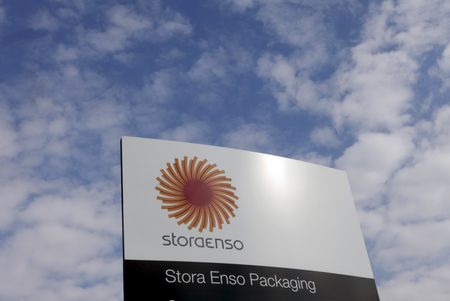BRUSSELS (Reuters) -The European Union is set to propose a 2 euro ($2.27) handling fee for low-value e-commerce packages coming into the bloc, as it struggles to deal with the billions of goods sold by online platforms such as Shein and Temu to European consumers.
EU customs authorities handled some 4.6 billion low-value packages bought online in 2024, 91% of them coming from China and a doubling from 2023.
The European Commission in February said it would remove the duty-free treatment of low-value consignments worth no more than 150 euros, but not until 2028. The Commission also said it would explore the possibility of an e-commerce handling fee.
The fee needs approval from EU governments, which have not yet discussed it, and the European Parliament. France called for such a measure last month.
The EU executive said the fee would cover work to ensure compliance of the huge number of parcels with EU rules, such as for toy safety, and would be incurred by the online retailer, rather than by customers.
“With 4.6 billion packages, you can’t really have proper controls and to introduce it costs a lot of money and therefore it’s fair to ask Alibaba, Temu or Shein to pay their fair share of the cost,” Bernd Lange, chair of the European Parliament’s trade committee, told reporters on Wednesday.
Alibaba, Shein, and Temu did not immediately respond to a request for comment.
China’s foreign ministry said it hoped the EU would abide by its commitment to openness and “provide a fair, transparent and non-discriminatory business environment for Chinese firms”.
The Commission has put forward a proposed 2 euro handling fee per parcel delivered directly to the customer or a smaller 50 cent fee for parcels handled by a warehouse within the EU.
The United States this month scrapped its “de minimis” policy that allowed duty-free entry to parcels worth less than $800.
European retailers say the existing duty-free policy gives Shein and Temu an unfair advantage.
Online retailer Zalando, which sells branded clothes in 25 European countries, told Reuters it welcomed the fee proposal, but said the removal of the customs exemption threshold should be fast-tracked.
The handling fee “could be part of the solution to remedy the unfair competition from Temu and others,” said Stephan Tromp, deputy managing director of German retail association HDE. “At the same time, the duty-free limit of 150 euros must be abolished.”
Polish ecommerce company Allegro called the fee a “step in the right direction” but said the details of its implementation will be crucial.
For example, the lower 50-cent fee for goods handled by warehouses in the EU might ultimately favour global companies with large logistics operations while small businesses will have to pay the 2-euro fee, Ewelina Stepnik-Godawa, regulatory affairs manager at Allegro, said in an emailed comment to Reuters.
Europe’s biggest fast-fashion retailer, Zara owner Inditex, declined to comment on the fee plan.
In a BBC interview earlier this month, Inditex CEO Oscar Garcia Maceiras backed the removal of the duty-free policy to ensure a “level playing field” with the same rules for all competitors.($1 = 0.8826 euros)
(Reporting by Philip Blenkinsop in Brussels; additional reporting by Ethan Wang in Beijing, Helen Reid in London, Anna Pruchnicka in Gdansk, and Matthias Inveradi in Dusseldorf; Editing by Richard Lough and Jane Merriman)












